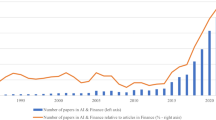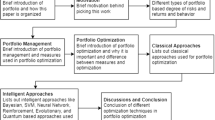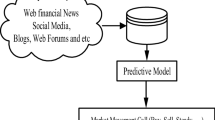Abstract
Market making (MM) strategies have played an important role in the electronic stock market. However, the MM strategies without any forecasting power are not safe while trading. In this paper, we design and implement a twotier framework, which includes a trading signal generator based on a supervised learning approach and an event-driven MM strategy. The proposed generator incorporates the information within order book microstructure and market news to provide directional predictions. The MM strategy in the second tier trades on the signals and prevents itself from profit loss led by market trending. Using half a year price tick data from Tokyo Stock Exchange (TSE) and Shanghai Stock Exchange (SSE), and corresponding Thomson Reuters news of the same time period, we conduct the back-testing and simulation on an industrial near-to-reality simulator. From the empirical results, we find that 1) strategies with signals perform better than strategies without any signal in terms of average daily profit and loss (PnL) and sharpe ratio (SR), and 2) correct predictions do help MM strategies readjust their quoting along with market trending, which avoids the strategies triggering stop loss procedure that further realizes the paper loss.
Similar content being viewed by others
References
Radcliffe R. Investment: Concepts, Analysis, Strategy. Boston: Addison-Wesley, 1997
Brahma A, Chakraborty M, Das S, Lavoie A, Magdon-Ismail M. A bayesian market maker. In: Proceedings of the 13th ACM Conference on Electronic Commerce. 2012, 215–232
O’hara M. Market Microstructure Theory. Cambridge, Mass.: Blackwell Publishers, 1995
Othman A, Sandholm T. Automated market-making in the large: the gates hillman prediction market. In: Proceedings of the 11th ACM Conference on Electronic Commerce. 2010, 367–376
Othman A, Sandholm T, Pennock D, Reeves D. A practical liquiditysensitive automated market maker. In: Proceedings of the 11th ACM Conference on Electronic Commerce. 2010, 377–386
Das S, Magdon-Ismail M. Adapting to a market shock: optimal sequential market-making. Advances in Neural Information Processing Systems, 2008, 361–368
Chakraborty T, Kearns M. Market making and mean reversion. In: Proceedings of the 12th ACM Conference on Electronic Commerce. 2011, 307–314
Kim K. Financial time series forecasting using support vector machines. Neurocomputing, 2003, 55(1-2): 307–319
Cao L, Tay F. Financial forecasting using support vector machines. Neural Computing&Applications, 2001, 10(2): 184–192
Cao L. Support vector machines experts for time series forecasting. Neurocomputing, 2003, 51: 321–339
Huang W, Nakamori Y, Wang S. Forecasting stock market movement direction with support vector machine. Computers & Operations Research, 2005, 32(10): 2513–2522
Fung G, Yu J, Lu H. The predicting power of textual information on financial markets. IEEE Intelligent Informatics Bulletin, 2005, 5(1): 1–10
Schumaker R, Chen H. Textual analysis of stock market prediction using financial news articles. In: Proceedings of the 12th Americas Conference on Information Systems. 2006, 185
Schumaker R, Chen H. A quantitative stock prediction system based on financial news. Information Processing & Management, 2009, 45(5): 571–583
Schumaker R, Chen H. Textual analysis of stock market prediction using breaking financial news: the AZFin text system. ACM Transactions on Information Systems, 2009, 27(2): 12
Schumaker R, Chen H. A discrete stock price prediction engine based on financial news. Computer, 2010, 43(1): 51–56
Li X, Wang C, Dong J, Wang F, Deng X, Zhu S. Improving stock market prediction by integrating both market news and stock prices. In: Hameurlain A, Küng J, Wagner R, Liddle S W, Schewe K D, Zhou X, eds. Database and Expert Systems Applications. Berlin: Springer, 2011, 279–293
Chen N, Deng X, Zhang J. How profitable are strategic behaviors in a market? In: Demetrescu D, Halldórsson MM eds. Algorithms-European Symposium on Algorithms. Berlin: Springer, 2011, 106–118
Abernethy J, Chen Y, Vaughan J. An optimization-based framework for automated market-making. In: Proceedings of the 12th ACM Conference on Electronic Commerce. 2011, 297–306
Bu T M, Deng X, Qi Q. Arbitrage opportunities across sponsored search markets. Theoretical Computer Science, 2008, 407(1): 182–191
Bu T M, Deng X, Lin Q, Qi Q. Strategies in dynamic pari-mutual markets. In: Papadimitriou C, Zhang S, eds. Internet and Network Economics. Berlin: Springer, 2008, 138–153
Salton G, McGill M J. Introduction to Modern Information Retrieval. New York: McGraw-Hill Inc., 1986
Li X, Wang R, Cao J, Xie H. Empirical analysis: stock market prediction via extreme learning machine. In: Proceedings of the 2013 International Conference on Extreme Learning Machines. 2013, 1–12
Easley D, Prado L. dMM, O’Hara M. Themicrostructure of the “flash crash”: flow toxicity, liquidity crashes, and the probability of informed trading. The Journal of Portfolio Management, 2011, 37(2): 118–128
Abad D, Yagüe J. From pin to vpin: An introduction to order flow toxicity. The Spanish Review of Financial Economics, 2012, 10(2): 74–83
Han J, Kamber M, Pei J. Data Mining: Concepts and Techniques. San Francisco: Morgan kaufmann, 2000
Author information
Authors and Affiliations
Corresponding author
Additional information
Xiaodong Li received the BSc degree in computer science from Nanjing University, China. He is currently a PhD student at City University of Hong Kong, China. His research interests include data mining and algorithmic trading.
Xiaotie Deng is a chair professor in the Department of Computer Science, Shanghai Jiaotong University, China. His research focus is on algorithmic game theory, which deals with computational issues on fundamental economic problems such as Nash equilibrium, resource pricing and allocation protocols such as auction and market equilibrium, as well as theory and practice in internet market design.
Shanfeng Zhu received the BS and MPhil degrees in computer science from Wuhan University, China in 1996 and 1999, respectively, and the PhD in computer science from the City University of Hong Kong, China in 2003. He is currently an associate professor of School of Computer Science, and Shanghai Key Lab of Intelligent Information Processing, Fudan University, China. Before joining Fudan University in July 2008, he was a postdoctoral fellow at Kyoto University, Japan. His research focuses on developing and applying machine learning, data mining and algorithmic methods for information retrieval, algorithmic trading, and bioinformatics. He is a member of the CCF and the ACM.
Feng Wang received the MS and PhD degrees in computer science in 2005 and 2008, respectively, both from Wuhan University, China. She is currently an associate professor of School of Computer Science, and State Key Lab of Software Engineering ofWuhan University, China. Her research interests include machine learning, intelligent information retrieval, and algorithmic trading. She serves as a reviewer for several IEEE transactions, other international journals and conferences. She is a member of IEEE and ACM, and a senior member of CCF.
Haoran Xie received the BEng degree in software engineering from Beijing University of Technology, China and the MSc and PhD degrees in computer science from City University of Hong Kong, China. He is currently a senior research assistant at Hong Kong Baptist University, China. His research interests include user modeling, personalization, social media, recommender systems, and financial data mining.
Rights and permissions
About this article
Cite this article
Li, X., Deng, X., Zhu, S. et al. An intelligent market making strategy in algorithmic trading. Front. Comput. Sci. 8, 596–608 (2014). https://doi.org/10.1007/s11704-014-3312-6
Received:
Accepted:
Published:
Issue Date:
DOI: https://doi.org/10.1007/s11704-014-3312-6




